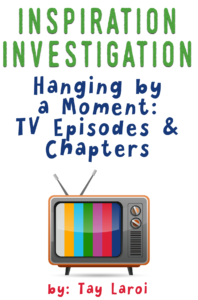
Love it or hate it, it’s impossible to deny that The Walking Dead has left a mark on the popular psyche and isn’t going away anytime soon, especially since it’s been renewed for at least twelve seasons. At first, that news made me roll my eyes. After how bad season two was, I wondered how they could keep up momentum for that long, but if last season’s cliffhanger ending was anything to go off of, they might just keep up the steam.
For those don’t know, season seven ended with one of the most suspenseful five minutes on recent television. Our villain, who has only just been revealed, paces and whistles while trying to decide which character, all of which are at least likeable, if not adored by fans, to beat to death. It ends with him delivering the final blow as the other characters scream in the background, but the audience doesn’t get to see who it was until October 23rd.
Usually, I catch up on The Walking Dead every few weeks due to my sporadic schedule, but I know that this is an episode that I absolutely cannot miss. I have to know who died (I think it was Abraham, but that’s a whole nother article).
Chapters in books should end a lot like that season ending.
Well, okay, maybe not with the zombies, the crazy man swinging a bat wrapped in barbed wire, and the blood splatter, but with that sort of anticipation and desire to see what comes next. Each chapter should leave the reader with some sort of question, like ‘Who did the villain kill?’ or just enough rising action that they absolutely have to know what happens on the next page. I think that’s why some of the best books are the ones you can’t put down. They constantly leave you guessing what’s going to happen, leaving the future events shrouded in mystery so that you have no choice but to turn the page and find out.
When I wrote “Portraits of a Faerie Queen” (which won’t be out for a while, but I promise to post stuff when it is), I did my best to model the chapters on TV episodes, especially when it came to ending them. I emphasized ending putting breaks at the beginning of sort of conflict, a question, or a discovery that would take more time to explore than what was left in the chapter. For the most part, according to my past beta readers, the strategy worked pretty well. While early drafts certainly had its problems—heck, the current version has some problems—people said they couldn’t put it down because it was constantly ending on a cliffhanger of some sort. People wanted to see my book to the end. Mission accomplished.
Obviously the way you end your chapters is going to depend on the genre, but it could definitely be worth your time to study how shows within your genre break up their episodes. If you write romance, check out shows about romance. If you write sci-fi or fantasy like me, find a show you like and see how they reveal the episode story by story. TV shows these days are just as diverse as books, so there’s something there for everyone.
And if you tune into The Walking Dead on October 23rd, remember. No Spoilers!

